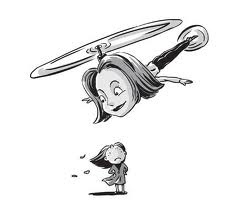
As parents, many of us do things for our kids that we were able and expected to do for ourselves when we were children. A big difference from today, when all too often we are over-involved in many areas of our children`s lives.` How can a parent be too involved or do too much for their child`` Isn`t that just being a good parent`` But when we don`t expect our kids to take responsibility for chores or their behavior, and we attempt to smooth away all the bumps and bruises that are a natural part of childhood, we aren`t doing our kids a favour.` Instead, we`re bringing them up to avoid taking personal responsibility and to expect that others will take care of things for them ` even when they are really able to take care of themselves
Making mistakes and experiencing `failure` are essential life experiences. Doing too much for your kids takes many different forms, but the common theme is doing something for your children that they already can, or can learn to do for themselves. Here are some common examples:
- Reminding your child to do her homework
- Finishing your child`s homework or science project
- Making school lunch every day for your 10-year old
- Bringing your 5-year-old`s coat (or lunch or homework) to school after she left it at home (again)
Parents often over-function without even realizing they are doing it.
Why is over-functioning problematic` If you always remind your child to do her homework so she won`t forget and receive a bad mark in school, you have done something for her that in the short-term may be helpful, but in the long-term is problematic because your child is not getting the opportunity to learn how to be responsible for herself, or to practice important life skills such as time management and self-discipline.
Making mistakes and experiencing `failure`, disappointment or discomfort are essential life experiences that provide the opportunity for kids to learn how to do better and to practice new skills
Here`s another big downside of over-functioning: it can also become a source of power struggles.Take the example above of reminding your kids to do their homework. It often happens that as you remind (and eventually insist) that they do their homework, they procrastinate and resist, and a power struggle develops.
TRY THIS:
- Pay attention to all the things you do for your children and ask yourself:
Why am I doing this`
Are they capable of doing this for themselves` (If so, teach them.)
What would happen if I didn`t do this for them`
- Experiment with not doing some of the things you typically do, and let them know in advance that they should not expect that from you anymore.
When you come home after having to work late and find that your child`s homework isn`t finished (again), ask yourself these questions before doing anything: Whose chore is it` Mine or my child`s` Who should be responsible for getting it done`
Recognizing When You Are Over-Doing
How do I know when I am doing too much for my child` How do I recognize it` You`ll know if:
You feel more pain than your child seems to;
When your child is refusing to do even the simplest chore;
When you realize that you`ve lost perspective about what to expect from your child.
Think of it this way.` When you come home after having to work late and find that your daughter`s homework isn`t finished (again) and your son is sulking because he argued with a friend, ask yourself these five questions before you do anything:
- Are you fighting the same battles over and over and getting no further ahead`
- Whose chore is it` Mine or my child`s`
- Whose problem is it`
- Who should be responsible for getting it done`
If you come to the realization that the chore (or the problem or responsibility) is your child`s and that your typical response is to over-do, then it`s time to step back and find a different approach. This doesn`t mean that you have been a bad parent; it just means that you`ve taken on too much of what belongs to your child. It also doesn`t mean that you don`t love your child ` you do ` but now it`s time to try a more effective way to help them grow up.
Coaching, Not Doing
Hands-on involvement ` as a coach and teacher ` will help your child develop the skills they need to face new or disliked tasks and to overcome obstacles.` If your basically disorganized primary school son really needs to clean his room, he likely needs your involvement to learn how to effectively do this. When you work alongside him instead of doing the work for him, you can teach him along every step of the way (something especially important for younger children).` Your son likely would be lost without this type of hands-on involvement; with it, he learns what`s needed to accomplish the task. Maybe your middle school daughter has proclaimed her hatred of assigned summer reading.` You can offer to also read the book so that you can talk about it together, discussing her perceptions and what you both found interesting.` By doing so, you are showing her that reading can be enjoyable and you are helping her think through her book report without doing the work for her.` Both examples incorporate the parental teaching and coaching role. By doing with instead of for, you are spending time with your child while also developing their abilities and building their character. It`s a win/win for you both.

